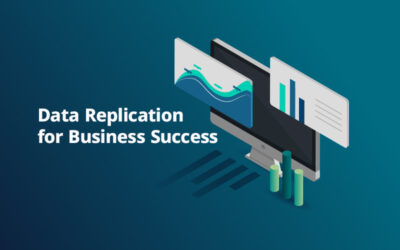With changing work styles and rising tide of regulations, data protection, in recent years has become a mandatory part of every company’s security strategy. Data is the prime asset for any organization and protection of data has become a necessity for all companies, no matter the size. Be it employee information, customer payment information or business strategies, every organization is worried about the security of their sensitive data. Though, network security may seem like a simple, basic concept, but there have been several incidences of data breaches happening these days. In 2019, data breaches compromised the private data of hundreds of millions of users, the biggest security incidents involving companies such as Capital One or Zynga. Companies cannot ignore mitigating the risk of targeted or accidental data leaks or hope they won’t suffer a data breach. Confidentiality breaches can occur at any stage of data transmission, which makes even a basic process such as data entry outsourcing highly sensitive. Breach of sensitive information carry civil and criminal penalties and may invite class action law suits. Therefore, a practical approach is vital to tackle cyber security problems.
Data breaches can be disastrous as they are often followed by hefty fines, brand damage and loss of customer trust. Laws and regulations surrounding data breaches are now moving at a faster pace due to expanding consequences, with the implementation of the European Union’s General Data Protection Regulation (GDPR)and the United States’ growing interest and demand in data privacy and protection. Security at its bare minimum is no longer realistic, and instead a competitive advantage for companies. Being GDPR-compliant has become an important consideration in the way data is stored, handled, and processed. Under this law, companies can be fined not only for data breaches but also for failing to respect the new rights granted to data subjects under them.
How Does GDPR affect Data Protection?
The General Data Protection Regulation (GDPR) is a uniform law applicable across the European Union (EU), which enforces the data protection rules and regulations. The main goal of GDPR is to implement common data security ideas such as minimizing the collection of personal data, deletion of personal data (that is not required any longer), restriction of access, and data security during the entire lifecycle. There is no specific restriction based on company size, location or scope of business, meaning any entity with an internet presence will be affected.
Companies are now held to a higher expectation to protect their consumer’s data, further emphasizing the evolving consideration of cyber security as a necessity in business. Companies found non-compliant towards the area of data protection can get penalized for up to €20 million or 4 percent of the total annual worldwide turnover of the preceding financial year, whichever is higher. Consumer data, including PII (Personally Identifiable Information) is a key target for cyber criminals, but safeguarding intellectual property (IP) is gaining greater significance too.
Another important implication of data security regulations is the major difference between the approach towards the collection of data in the US and the EU. In the United States, personal information in most cases is collected as a matter of course, with only an “opt-out” offered to consumers. By contrast, GDPR requires that in order to collect information from EU data subjects, an affirmative ‘opt in’ consent must be obtained that clearly specifies how the data will be used. In short, privacy policies must clearly match.
Even though breach of sensitive data alone is months of bad publicity in general, the wrath of consumers often stem from the delayed notification and response from the company side. Companies often incur this wrath when they attempt to keep a data breach hidden only for it to be uncovered, resulting in increased litigation costs. The GDPR now mandates and upholds companies to the high standard of notifying data breach-affected consumers within 72 hours.
Companies have become more alert about the importance of data privacy and have started investing in novel data security strategies which aim to protect data and keep intruders out. Let’s discuss some top strategies which companies can adopt to protect sensitive data or information against malicious agents in the upcoming year –
- Ensure proper data handling – Implementing key policies regarding data handling and management is one of the basic, initial steps of data protection. This is particularly important if multiple employees will be handling and classifying data. Proper data processing services involves establishing data classification policies that apply to your company and the nature of its data. Data can generally be classified as restricted (highly sensitive), confidential (private and moderately sensitive), and public (not sensitive). It is also important to know what type of data is stored and where it is stored. By correctly identifying their data flow and its vulnerable points, companies can take informed decisions regarding the decisions they need to take to protect it. In short, transparency is vital for both compliance and for building effective data protection policies.
- Be selective about sensitive data – Some companies may have much control when it comes to the amount of private data they have to store. In other cases, some companies have the capacity to mitigate how much data they have to protect from cyber attacks and data breaches. The more sensitive the data is, the greater will be the risk of it falling in to the wrong hands. Being selective and minimizing sensitive data collections can help save valuable time, optimize secure data storage and prevent breaches down the line.
- Encrypt sensitive files – Considered one of the most powerful and useful tools in the data security arsenal, encryption helps secure sensitive information from outsiders and careless employees. Companies need to consider encrypting sensitive files, including PII, as well as legally or medically sensitive data, thus ensuring that only authorized persons can access the contents. This is important in terms of controlling and managing data within the company and protects confidential files in case of an outside attack.
- Improve employee awareness – The human element remains one of the biggest vulnerability factors in the chain of data protection as a simple error and negligence from their part can lead to disastrous consequences. In fact, reports suggest that employee negligence or ignorance account for about 54 percent of data breaches. In order to mitigate these risks, large companies makes security awareness trainings mandatory for all employees. These trainings can provide employees with necessary knowledge to make smart decisions and use appropriate caution when handling sensitive data. Cyber security is everyone’s responsibility in an organization including all levels of employees up to the C-suite, as well as part-time employees, seasonal workers and interns. Therefore, each person in the enterprise with access to a computer must be trained on cyber security best practices and ideally it should start at the on boarding of the person.
- Conduct regular risk assessments – Regarded as an essential part of a cyber security strategy, risk assessment can identify vulnerabilities in the network, insufficiencies in employee education, inadequacies in the security posture of business partners etc. For this reason, companies must have a well-defined methodology that conducts and evaluates risks consistently. By identifying potential threats and evaluating risk periodically, organizations can prevent security threats in the long run.
- Protecting data in the cloud – Businesses now rely on cloud storage system to store and maintain digital data. It is one of the most preferred ways of maintaining digital data. However, when more enterprises are shifting to cloud storage system for better flexibility, it increases security challenges. With more and more sensitive data moving to cloud storage, it has become a prime target for data breaches. Companies use specialized security tools to find the gap between the cloud provider’s security measures and the security measures that you might address. Another strategy involves encrypting sensitive data before uploading to the cloud.
- Creating BYOD policies – As companies embrace the trend of BYOD (Bring-your-own-device) that increase productivity and reduce costs, they often ignore their security implications that open the door for unauthorized access to sensitive data. Devising a strict BYOD policy can help securely keep sensitive information in personal devices of employees. It is important to formulate certain security regulations when using personal device within an office premise. Security measures like software installation and configuration must be adopted, and support for software updates, maintenance and troubleshooting should be provided.
- Deploy a DLP solution – Data Loss Prevention (DLP) solutions are gaining huge significance with companies looking for different ways to reduce the risks related to sensitive data (including loss, theft and misuse). With a DLP solution, like Endpoint Protector, companies can discover and monitor confidential information (including PII and IP) as well as prevent unauthorized disclosure of sensitive data by creating and enforcing disclosure policies.
- Focus on password security – One of the most basic data security mistakes which employees frequently make is – using weak passwords to protect data in their system. It is important to improve password security practices by providing enhanced security training to employees. Companies can also benefit from the use of password management applications like – Dashline, LastPass, RoboForm, KeePass Password Safe and Sticky Password Premium.
- Set internal controls to minimize employee fraud – Regardless of how much you trust your employees, it is wise to use internal controls to limit your employee fraud risk. Limit each employee’s access to only the information they need for their specific job. Make sure your systems log what information each employee accesses.
Securing sensitive business information is vital for companies. An organization-wide security practice needs to be adopted to prevent unauthorized access to high-value data. The best practice is to devise equal security measures for every member of an organization. In order to prevent the incidences of malware and ransomware attack, it is important that every employee is made aware about key security practices and abide by them consistently. A culture of security awareness can facilitate a significant change in detecting and preventing potential security threats.
In this new decade, companies need to switch from a reactive approach to data security threats to a proactive one. A proactive approach involves detecting or blocking potential security threats before an incident occurs. This approach is more economical and safer and it involves robust security policies and measures in place to protect sensitive data. Outsourcing data entry services to a reliable provider ensures safety of data and prevents leakage of information that could create threats of being hacked or misused.
As security standards and expectations will keep evolving in the new decade, data protection will be paramount in 2020. With the increasing number of data protection regulations and rising awareness of consumers, companies can no longer neglect the need for efficient data security strategies.




